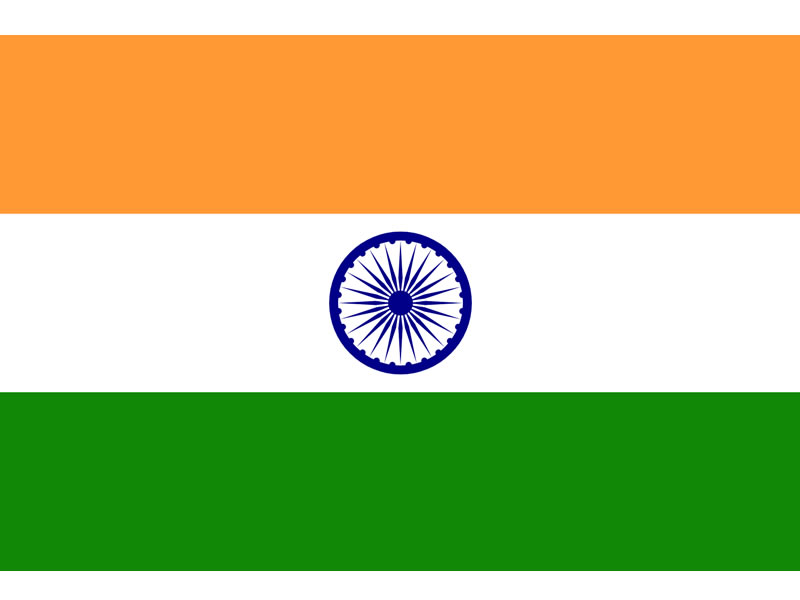India Emerges as a Global Actor during the Pandemic Crisis
Author: Amb. Ashok Sajjanhar
Introduction
The world had been witnessing a rapid flux in geopolitics and international relations over the past few years. These trends became much more pronounced in 2020 with the advent of the coronavirus. At the beginning of 2021, the world was looking at the coming year with some hope and optimism. However, last year witnessed the eruption of the most devastating Delta variant in March 2021. Today the world is staring at the havoc being perpetrated by the new Omicron variant.
Under these demanding circumstances, India has taken several bold steps to emerge as a global leader in many significant areas. Not only has it been able to effectively handle the numerous challenges domestically but it has also resolutely moved to extend a helping hand to many foreign partners to ameliorate their suffering. This is in keeping with Prime Minister Narendra Modi’s assertion at his first Address to the UN General Assembly Session in September 2014, soon after assuming power, that India’s foreign policy is governed by India’s age-old maxim of “Vasudhaiva Kutumbakam’’ (i.e. The World is One Family).
Vaccine Maitri Initiative
One year ago, on 16th January 2021, India set out on the formidable journey of vaccinating its huge 1.38 billion-strong population against Covid-19. Over this period, more than 90% of the Indian eligible population has received the first dose and above 65% have received both doses. Additionally, precautionary doses, commonly known as booster shots, are now being given to frontline workers and vulnerable individuals above the age of 60 years. Youth between the ages of 15-18 years started receiving their first dose on 3rd January 2022. Vaccination of children between 12-14 years is expected to start soon.
Following the vision of ‘’One Earth, One Health’’ propounded by PM Modi, India started sharing its vaccines with the outside world within 4 days of the commencement of its own vaccination drive. In accordance with the ‘’Neighbourhood First’’ Policy enunciated by PM Modi at the beginning of his first term, Bhutan and Maldives became the first countries to receive 150,000 and 100,000 vaccines respectively on 20th January 2021. Bangladesh and Nepal came next on 21st January 2021. Myanmar, Seychelles, Mauritius, Sri Lanka, and Afghanistan followed soon thereafter. Although India has not recognized the Taliban dispensation in Kabul since it took over power by force on 15 August 2021, as has no other country in the world, it has not hesitated to provide, essential medicines including additional one million doses of Covid-19 vaccines and about 4 tons of life-saving drugs and equipment as humanitarian aid to Afghanistan. All these items were supplied to the Indira Gandhi Hospital in Kabul by air via Dubai and Iran as Pakistan did not allow the use of its territory for overland transit to Afghanistan, which would have been the shortest and quickest route.
Supplies of vaccines were welcomed with deep gratitude by the recipient countries. Bhutan’s PM applauded “the gesture that signifies compassion and generosity of PM Modi and people of India for the wellbeing of humanity.” He added: “It is of unimaginable value when precious commodities are shared even before meeting your own needs.” Bangladesh Health Minister said that India had stood by Bangladesh during the Liberation War of 1971 as well as the pandemic. Nepalese PM thanked PM Modi and the Indian government for the “generous grant at this critical time when India is rolling out vaccination for its own people.” The Brazilian President Jair Bolsonaro thanked PM Modi with a picture of Lord Hanuman bringing the holy “Sanjeevani” (i.e. panacea). Prime Minister of Dominica said after receiving the COVID19 vaccines: “I must confess that I did not imagine that the prayers of my country would be answered so swiftly.” United Nations Secretary-General Antonio Guterres termed India’s vaccine production capacity as the “best asset”, the world has to fight the pandemic. US State Department; PM of Mauritius; Director-General, World Health Organization; Bill Gates and several others spoke appreciatively of the selfless manner in which India helped several developing countries with the vaccines.
India had to temporarily curtail these supplies when the second wave of the virus struck India in April 2021 but they were resumed as soon as the situation and supplies normalized.
This initiative significantly enhanced the influence and image of the country. The fact that India has been able to develop, manufacture and use several vaccines domestically has significantly enhanced India’s status as a rising scientific and technological power.
India’s Presidency of the UN Security Council (UNSC)
India assumed the two-year non-permanent membership of the UNSC on the 1st January 2021. It took over as President of UNSC for August 2021. This provided India with an invaluable opportunity to enhance its credibility as a responsible stakeholder and a rightful claimant to the permanent membership of the UNSC. India identified maritime security, peace-keeping, and counter-terrorism as key issues for special debates during its presidency. Discussions on Maritime Security in different UN fora had been scheduled earlier but could not be conducted due to the high sensitivity of the issue. PM Modi decided to chair the Session on 9th August, becoming the first Indian Prime Minister to conduct a UNSC meeting. Russian President Putin attended the deliberations. The last time Putin attended such a discussion was in 2005! The month of August also witnessed the forcible assumption of power in Kabul by the Taliban. This put a huge onus on the Indian Presidency. India proved equal to the challenge. It presided over several discussions on the evolving situation and crafted Resolution 2593 which has come to represent the consensus view of the global community on actions that the Taliban must take in the governance of Afghanistan.
The competent and deft manner in which India built consensus even amongst opposing parties during its Presidency significantly added to its prestige and influence.
Climate Change
India took several initiatives during this period to ensure that its growth in the coming years would be green, clean, sustainable, and reliable. At the COP 26 Summit in Glasgow in Oct/Nov 2021, India committed to the target of net zero by 2070. India, with 17% of the world’s population contributes merely 5% to the global greenhouse gas emissions. As a result of efforts over past years, 40% of India’s energy generation is being contributed by non-fossil fuel sources. This emphasizes India’s commitment to sustainable development as it achieved the target under the Paris Accord, 9 years before the due date of 2030. India is the only G20 member which is meeting its commitments under the Paris Agreement. This has enabled it to emerge as a world leader in this critical area where earlier it used to be on the defensive.
“Vande Bharat’’ Mission
India launched the most ambitious evacuation plan undertaken thus far in May 2020 under the “Vande Bharat’’ Mission to transport back Indian nationals stranded in different countries due to the Covid-19 pandemic. This was necessitated on account of lockdowns and cessation of international flights by India and other countries due to the rapid spread of coronavirus. So far about 50,000 flights have been operated which repatriated 6.7 million people to India and foreigners to their home countries abroad. In addition, the initiative “Samudra Setu’’ by the Indian navy was launched to bring back around four thousand Indians from the Gulf and neighbouring countries. Such a mammoth operation conducted in a remarkably seamless way significantly enhanced the image of India.
Conclusion
India registered significant progress in several other domains, both domestic and external, during the pandemic period. More than 10 thousand start-ups were registered in the last 6 months. India is promoting Ease of Doing Business, minimizing government interference. Last year alone, more than 25 thousand compliances were implemented. The number of start-ups which was a few hundred some years ago has crossed 60,000 today. It also has more than 80 unicorns, the third-largest in the world, of which more than 40 were formed in 2021. During the Corona period, when the world was focusing on interventions like Quantitative Easing Program, India paved the way for reforms. The biggest projects to modernize digital and physical infrastructure got unprecedented momentum during the corona period. The US$10 billion incentive plan to roll out the fab, chip, and display industry is a testament to India’s commitment to making the global supply chain seamless. India is marching forward with the spirit of Make in India, Make for the world. India today presents limitless opportunities in the fields of aerospace, telecom, insurance, defence, and semiconductors.
In addition to the above, several other major initiatives were taken by India during this arduous period through the launch of the Western Quad comprising of India, Israel, UAE, and USA; strengthening of India’s ties with its neighbours, USA, Russia, and other strategic partners; reinforcing the Quad partnership; hosting the Delhi Regional Security Dialogue and the Third India-Central Asia Dialogue which brought India centre-stage to developments in Afghanistan, and many more. All these have enhanced India’s global influence and power and imbued it with hope, confidence, and determination to promote peace, security, and prosperity in the region and the world.
(Disclaimer: The views expressed in the articles are personal. Amb. Ashok Sajjanhar is a former Ambassador of India to Kazakhstan, Sweden and Latvia. He is the President of the Institute of Global Studies, New Delhi and a Distinguished Fellow at Ananta Aspen Centre.)
****
Português:
A Índia emerge como um ator global durante a crise pandêmica
Autor: Embaixador Ashok Sajjanhar
Introdução
O mundo vinha testemunhando um rápido fluxo na geopolítica e nas relações internacionais nos últimos anos. Essas tendências se tornaram muito mais evidentes em 2020 com o advento do coronavírus. No início de 2021, o mundo estava olhando para o próximo ano com alguma esperança e otimismo. No entanto, o ano passado testemunhou a erupção da variante Delta mais devastadora, em março de 2021. Hoje o mundo está olhando para o caos perpetrado pela nova variante Omicron.
Sob essas circunstâncias difíceis, a Índia deu vários passos ousados para emergir como líder global em muitas áreas significantes. Não só foi capaz de lidar eficazmente com os numerosos desafios internos, mas também se moveu resolutamente para estender a mão a muitos parceiros estrangeiros para aliviar seu sofrimento. Isso está de acordo com a declaração do primeiro-ministro Narendra Modi em seu primeiro discurso na Sessão da Assembleia Geral da ONU em setembro de 2014, logo após assumir o poder, de que a política externa da Índia é governada pela antiga máxima indiana de “Vasudhaiva Kutumbakam” (isto é, o Mundo é Uma Família).
Iniciativa Vacina Maitri
Há um ano, em 16 de janeiro de 2021, a Índia iniciou a formidável jornada de vacinar sua enorme e sólida população de 1,38 bilhão de pessoas contra o Covid-19. Durante esse período, mais de 90% da população indiana elegível recebeu a primeira dose e mais de 65% receberam ambas as doses. Além disso, doses de precaução, comumente conhecidas como doses de reforço, estão sendo administradas a trabalhadores da linha de frente e indivíduos vulneráveis com idade superior a 60 anos. Jovens entre 15 e 18 anos começaram a receber sua primeira dose em 3 de janeiro de 2022. A vacinação de crianças entre 12 e 14 anos deve começar em breve.
Seguindo a visão de “Uma Terra, Uma Saúde” proposta pelo primeiro-ministro Modi, a Índia começou a compartilhar suas vacinas com o mundo exterior dentro de 4 dias após o início de sua própria campanha de vacinação. De acordo com a política ”Vizinhança em primeiro lugar” enunciada pelo primeiro-ministro Modi no início de seu primeiro mandato, Butão e Maldivas se tornaram os primeiros países a receber 150.000 e 100.000 vacinas, respectivamente, em 20 de janeiro de 2021. Bangladesh e Nepal vieram em seguida em 21 de janeiro 2021. Mianmar, Seychelles, Maurício, Sri Lanka e Afeganistão seguiram logo depois. Embora a Índia não tenha reconhecido a dispensa do Talibã em Cabul desde que assumiu o poder à força em 15 de agosto de 2021, como nenhum outro país do mundo, não hesitou em fornecer medicamentos essenciais, incluindo um milhão de doses adicionais de vacinas Covid-19 e cerca de 4 toneladas de medicamentos e equipamentos de pronto-socorro, como ajuda humanitária ao Afeganistão. Todos esses itens foram fornecidos ao Hospital Indira Gandhi em Cabul por via aérea via Dubai e Irã, pois o Paquistão não permitiu o uso de seu território para trânsito terrestre para o Afeganistão, o que teria sido a rota mais curta e rápida.
Os suprimentos de vacinas foram recebidos com profunda gratidão pelos países receptores. O primeiro-ministro do Butão aplaudiu “o gesto que significa compaixão e generosidade do primeiro-ministro Modi e do povo da Índia pelo bem-estar da humanidade”. Ele acrescentou “É de valor inimaginável quando mercadorias preciosas são compartilhadas antes mesmo de atender às suas próprias necessidades”. O ministro da Saúde de Bangladesh disse que a Índia apoiou Bangladesh durante a Guerra de Libertação de 1971, assim como na pandemia. O primeiro-ministro nepalês agradeceu ao primeiro-ministro Modi e ao governo indiano pela “doação generosa neste momento crítico em que a Índia está lançando a vacinação para seu próprio povo”. O presidente brasileiro Jair Bolsonaro agradeceu ao primeiro-ministro Modi com uma foto de Lord Hanuman trazendo o santo “Sanjeevani” (isto é, panacéia). O primeiro-ministro de Dominica disse depois de receber as vacinas COVID19: “Devo confessar que não imaginava que as orações do meu país seriam respondidas tão rapidamente”. O secretário-geral das Nações Unidas, Antonio Guterres, classificou a capacidade de produção de vacinas da Índia como o “melhor ativo”, que o mundo tem para combater a pandemia. Departamento de Estado dos EUA; primeiro-ministro de Maurício; DiretorGeral da Organização Mundial da Saúde; Bill Gates e vários outros falaram com apreço da maneira altruísta com que a Índia ajudou vários países em desenvolvimento com as vacinas.
A Índia teve que reduzir temporariamente esses suprimentos quando a segunda onda do vírus atingiu a Índia, em abril de 2021, mas eles foram retomados assim que a situação e os suprimentos se normalizaram.
Esta iniciativa melhorou significativamente a influência e a imagem do país. O fato de a Índia ter sido capaz de desenvolver, fabricar e usar várias vacinas no mercado interno aumentou significativamente o status da Índia como uma potência científica e tecnológica em ascensão.
A presidência indiana do Conselho de Segurança da ONU (CSNU)
A Índia assumiu a adesão não permanente de dois anos do CSNU em 1º de janeiro de 2021. Assumiu o cargo de presidente do CSNU em agosto de 2021. Isso proporcionou à Índia uma oportunidade inestimável de aumentar sua credibilidade como parte interessada responsável e requerente legítima para adesão permanente ao CSNU. A Índia identificou a segurança marítima, a manutenção da paz e o combate ao terrorismo como questões-chave para debates especiais durante sua presidência. As discussões sobre Segurança Marítima em diferentes fóruns da ONU haviam sido agendadas anteriormente, mas não puderam ser conduzidas devido à alta sensibilidade do assunto. O primeiro-ministro Modi decidiu presidir a sessão em 9 de agosto, tornando-se o primeiro primeiro-ministro indiano a realizar uma reunião do CSNU. O presidente russo Putin participou das deliberações. A última vez que Putin tinha participado de tal discussão foi em 2005! O mês de agosto também testemunhou a tomada forçada do poder em Cabul pelo Talibã. Isso colocou um enorme ônus sobre a Presidência indiana. A Índia provou estar à altura do desafio. Presidiu a várias discussões sobre a evolução da situação e elaborou a Resolução 2593, que passou a representar a visão consensual da comunidade global sobre as ações que o Talibã deve tomar na governança do Afeganistão.
A maneira competente e hábil com que a Índia construiu consenso mesmo entre os partidos opostos durante sua presidência aumentou significativamente seu prestígio e influência.
Mudanças Climáticas
A Índia tomou várias iniciativas durante esse período para garantir que seu crescimento nos próximos anos fosse verde, limpo, sustentável e confiável. Na Cúpula da COP 26 em Glasgow em outubro/novembro de 2021, a Índia se comprometeu com a meta de zero líquido até 2070. A Índia, com 17% da população mundial, contribui meramente com 5% para as emissões globais de gases de efeito estufa. Como resultado dos esforços dos últimos anos, 40% da geração de energia da Índia está sendo fornecida por fontes de combustíveis não fósseis. Isso enfatiza o compromisso da Índia com o desenvolvimento sustentável, pois atingiu a meta do Acordo de Paris, 9 anos antes da data de vencimento de 2030. A Índia é o único membro do G20 que está cumprindo seus compromissos sob o Acordo de Paris. Isto a permitiu emergir como líder mundial nesta área crítica onde antes costumava estar na defensiva.
Missão “Vande Bharat”
A Índia lançou o plano de evacuação mais ambicioso realizado até agora em maio de 2020 sob a missão “Vande Bharat” para transportar de volta cidadãos indianos retidos em diferentes países devido à pandemia de Covid-19. Isso foi necessário devido aos bloqueios e à cessação de voos internacionais pela Índia e outros países devido à rápida disseminação do coronavírus. Até agora, foram operados cerca de 50.000 voos que repatriaram 6,7 milhões de pessoas para a Índia e estrangeiros para seus países de origem no exterior. Além disso, foi lançada a iniciativa “Samudra Setu” da marinha indiana para trazer de volta cerca de quatro mil indianos do Golfo e dos países vizinhos. Uma operação tão gigantesca, conduzida de maneira notavelmente perfeita, melhorou significativamente a imagem da Índia.
Conclusão
A Índia registrou progressos significativos em vários outros domínios, tanto domésticos quanto externos, durante o período de pandemia. Mais de 10 mil start-ups foram registradas nos últimos 6 meses. A Índia está promovendo a Facilidade de Fazer Negócios, minimizando a interferência do governo. Só no ano passado, mais de 25 mil compliances foram implementadas. O número de start-ups, que era de algumas centenas, anos atrás, atualmente ultrapassou 60.000. Também tem mais de 80 unicórnios, o terceiro maior do mundo, dos quais mais de 40 foram formados em 2021. Durante o período Corona, quando o mundo se concentrava em intervenções como o Quantitative Easing Program, a Índia abriu o caminho para reformas. Os maiores projetos para modernizar a infraestrutura digital e física ganharam impulso sem precedentes durante o período do Corona. O plano de incentivo de US$ 10 bilhões para lançar a indústria de semicondutores, chips e display é uma prova do compromisso da Índia em tornar a cadeia de suprimentos global perfeita. A Índia está marchando adiante com o espírito de Faça na Índia, Faça para o mundo. A Índia hoje apresenta oportunidades ilimitadas nas áreas aeroespacial, telecomunicações, seguros, defesa e semicondutores.
Além do supramencionado, várias outras iniciativas importantes foram tomadas pela Índia durante este período árduo através do lançamento do Quadrilátero Ocidental composto por Índia, Israel, Emirados Árabes Unidos e Estados Unidos da América; fortalecendo os laços da Índia com seus vizinhos, EUA, Rússia e outros parceiros estratégicos; reforçando da parceria Quadrilátera; sediando o Diálogo de Segurança Regional de Delhi e o Terceiro Diálogo Índia-Ásia Central, que trouxe a Índia para o centro do palco para os desenvolvimentos no Afeganistão, e muito mais. Tudo isso aumentou a influência e o poder global da Índia e a imbuiu de esperança, confiança e determinação para promover a paz, a segurança e a prosperidade na região e no mundo.
(Isenção de responsabilidade: As opiniões expressas nos artigos são pessoais. O Embaixador Ashok Sajjanhar é um ex-embaixador da Índia no Cazaquistão, Suécia e Letônia. Ele é o presidente do Instituto de Estudos Globais, Nova Délhi e um distinto membro do Centro Ananta Aspen.)
****
The diplomatic corps publications in this page are free of charge.
We kindly request the members of the diplomatic corps to send the texts in English and Portuguese, in Word format, to the email: pedro@theguide.com.br. You can also send an image in a .jpeg or .png format related to the text.








